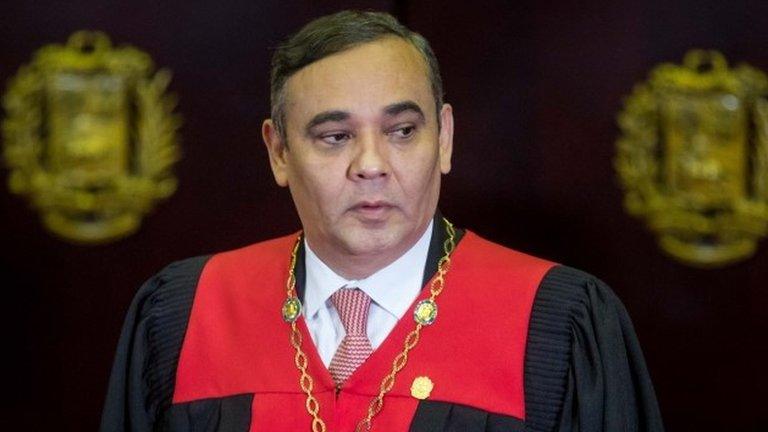Venezuela crisis: How the political situation escalated
- Published
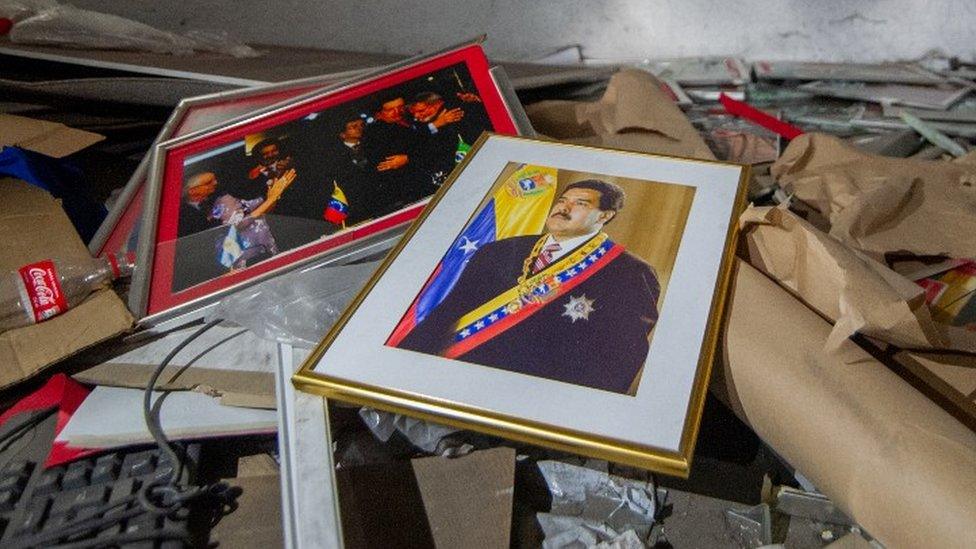
Many Venezuelans want to see President Maduro gone from power but he remains in the presidential palace
In Venezuela, the government of President Nicolás Maduro and the opposition are engaged in a bitter power struggle.
The South American country has been caught in a downward spiral for years with growing political discontent further fuelled by skyrocketing hyperinflation, power cuts, and shortages of food and medicine.
More than 5.6 million Venezuelans have left the country in recent years. So what exactly is behind the crisis rocking Venezuela?
Who's the president?
This would be an unusual question to ask in most countries, but in Venezuela many want to know exactly that after opposition leader Juan Guaidó declared himself acting president on 23 January 2019.
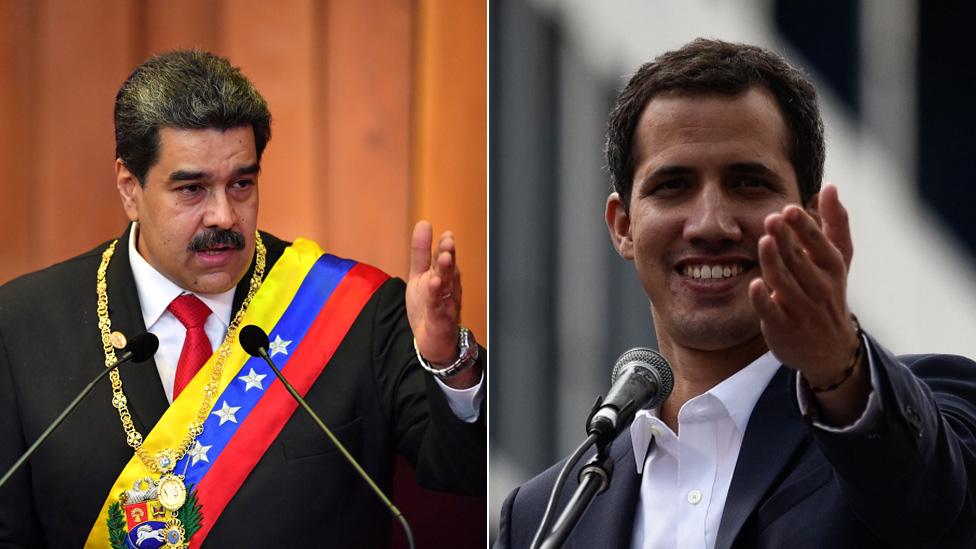
Some countries say Nicolás Maduro (L) is the legitimate president while others are backing Juan Guaidó
The move was a direct challenge to the power of President Maduro, who had been sworn in to a second six-year term in office just two weeks previously.
Not surprisingly, President Maduro did not take kindly to his rival's move, which he condemned as a ploy by the US to oust him.
He also said that he was the constitutional president and would remain so.
Despite attempts by Mr Guaidó to get the military to switch their allegiance to him, the armed forces have remained largely loyal to President Maduro, whose socialist party has also got a firm grip on the electoral body and the supreme court.
Why is the presidency disputed?
Nicolás Maduro was first elected in April 2013 after the death of his socialist mentor and predecessor in office, Hugo Chávez. At the time, he won by just 1.6 percentage points.
During his first term, the economy went into freefall and many Venezuelans blame him and his socialist government for the country's decline.
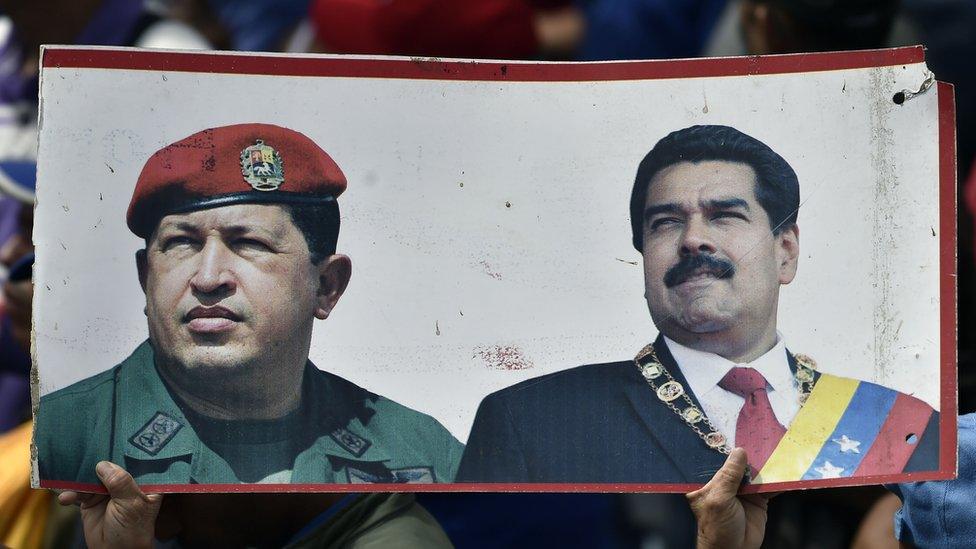
Nicolás Maduro was elected in 2013, after his mentor Hugo Chávez died
Mr Maduro was re-elected to a second six-year term in May 2018 in highly controversial polls, which most opposition parties boycotted.
Many candidates had been barred from running while others had been jailed or fled the country for fear of being imprisoned, and the opposition parties argued that the poll was neither free nor fair.
Mr Maduro's re-election was not recognised by the opposition-controlled National Assembly, which labelled Mr Maduro a "usurper" and argued that the presidency was vacant.
Citing articles in the constitution which in such cases call for the leader of the National Assembly to step in, Juan Guaidó declared himself acting president.
More than 50 countries recognised Mr Guaidó as the legitimate president, among them the US and many nations in Latin America. But Russia and China, among others, stood by President Maduro.
How much power does Mr Guaidó have?
Despite his broad international support, Mr Guaidó does not wield much power in practical terms.
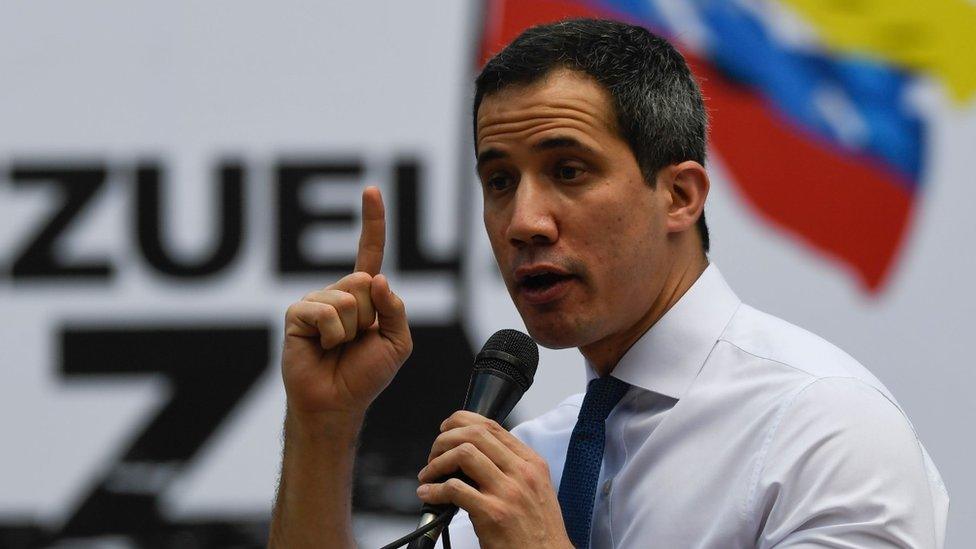
Juan Guaidó has been trying to dislodge Mr Maduro from power but the latter remains in the presidential palace
The security forces have so far remained loyal to Mr Maduro, who has rewarded them with frequent pay rises and put high-ranking military men in control of key posts and industries.
Mr Maduro remains in the presidential palace and some Venezuelans have become disillusioned by the failure of Mr Guaidó to dislodge his rival from power.
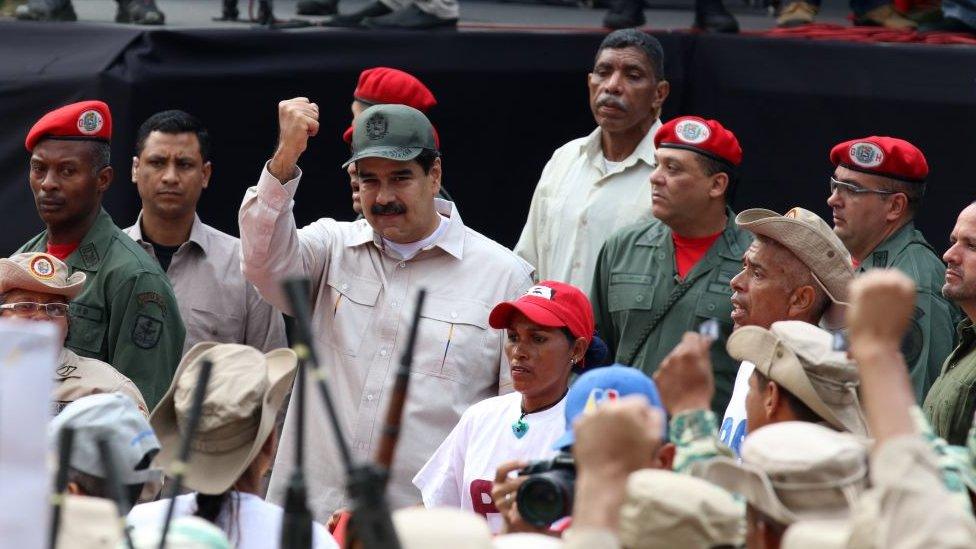
Mr Maduro has the military on his side and has also got the support of the Bolivarian militia
Talks between the government and the opposition held in 2019 made no progress.
The US has imposed sweeping sanctions on Venezuela and on Mr Maduro and his inner circle but they have failed to weaken Mr Maduro enough to drive him from office. Some analysts argue that they offer the Maduro government a convenient scapegoat to blame for the dire state of the economy.
How did Venezuela get this bad?
Some of the problems go back a long time. However, it is President Maduro and his predecessor Hugo Chávez who are the target of much of the current anger.
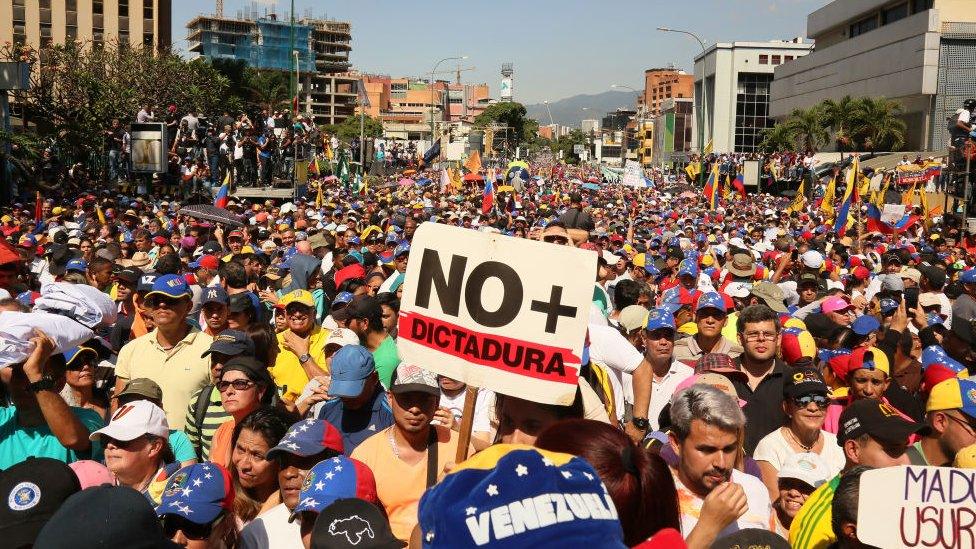
Before the coronavirus pandemic, there were large anti-Maduro protests
When Mr Chávez became president in 1999, he promised, among other things, to drive down Venezuela's huge levels of inequality.
While he managed to reduce inequality during his time in power, some of the socialist polices he brought in backfired. Take price controls, for example, which were aimed at making basic goods more affordable to the poor by capping the price of flour, cooking oil and toiletries. The controls meant that many Venezuelan businesses stopped production because they no longer made a profit, eventually resulting in shortages.
A loosening of foreign currency controls originally brought in by President Chávez in 2003 has eased those shortages as traders can sell goods in dollars but that means they have again become largely unaffordable to the poor or those without access to the US currency.
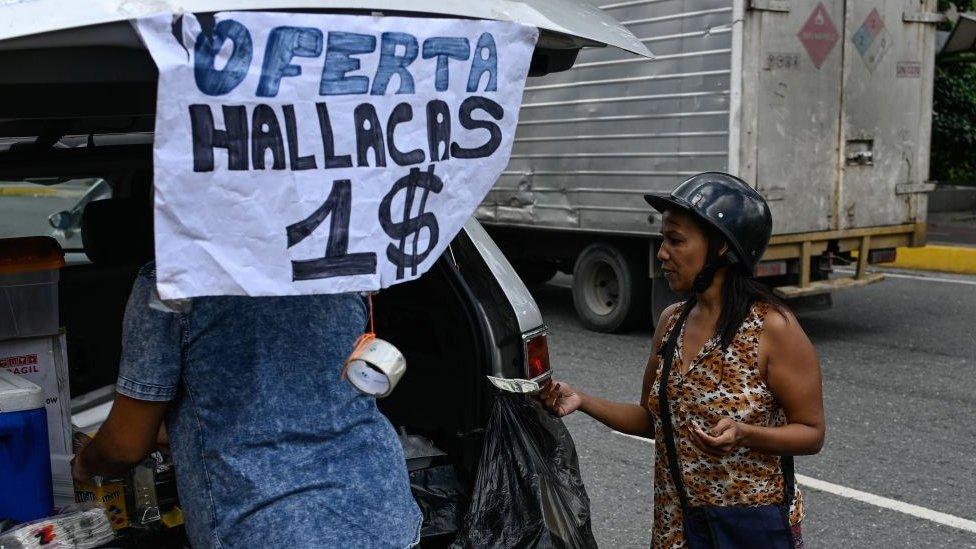
Even street vendors have resorted to using US dollars
Years of lack of investment in infrastructure further exacerbated by the more recent US sanctions on Venezuela's oil sector have crippled this key industry, which provides almost all of Venezuela's government revenue.
Venezuela has been in the grip of an economic crisis for years now with hyperinflation one of the main problems.
Business news website Bloomberg has been tracking the price of a cup of coffee in the Venezuelan capital, external, Caracas, to show how prices have increased. It has measured an increase of 2,597% in the 12 months to 1 August 2021 with a cup of coffee costing 7.8 million bolivares.
How have Venezuelans reacted?
According to figures compiled by the United Nations, more than 5.6 million Venezuelans have left the country since the crisis started to bite in 2014.
The government has disputed the figures, saying they are inflated by "enemy countries".
What drives someone to cross South America on foot?
The majority of those leaving have crossed into neighbouring Colombia, from where some move on to Ecuador, Peru and Chile. Others have gone south to Brazil.



The mass migration is one of the largest forced displacements in the western hemisphere.
Related topics
- Published27 November 2020
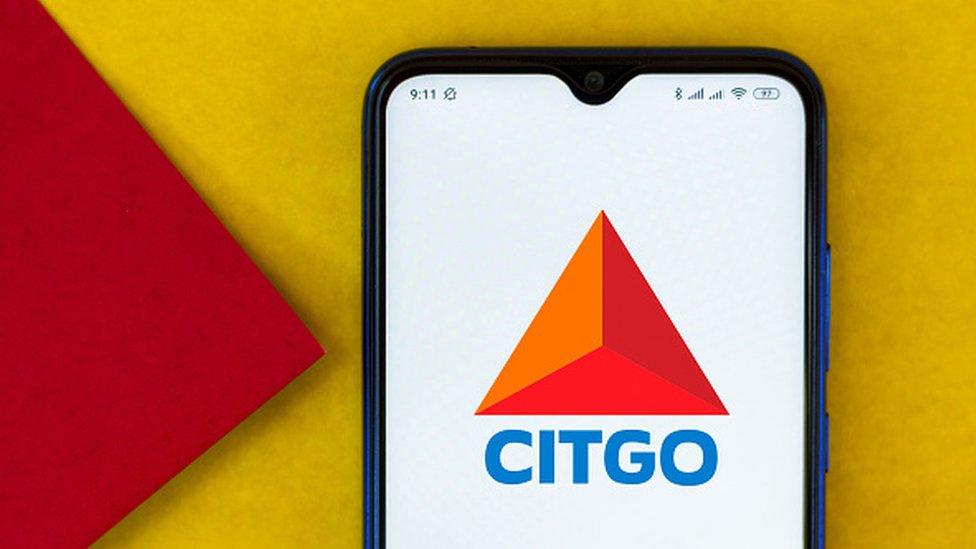
- Published24 October 2020
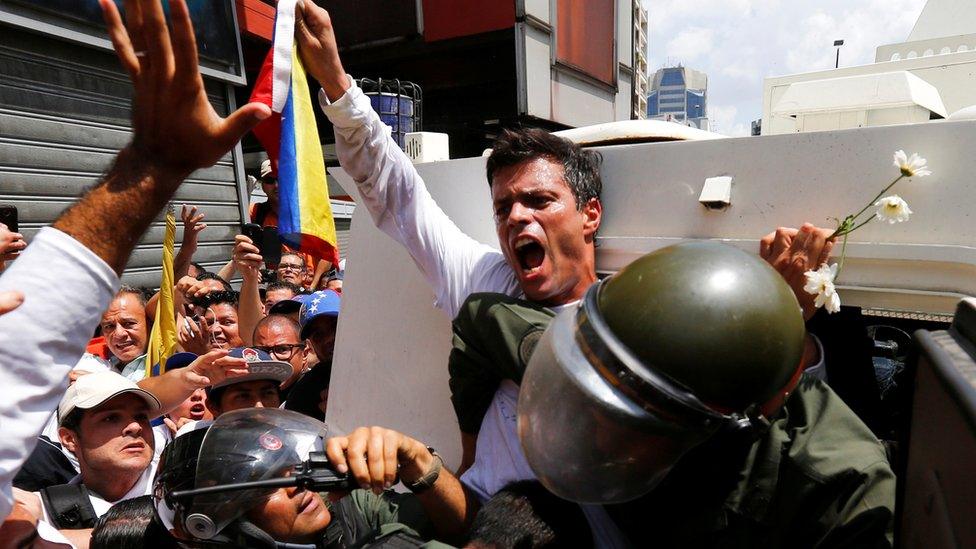
- Published5 October 2020
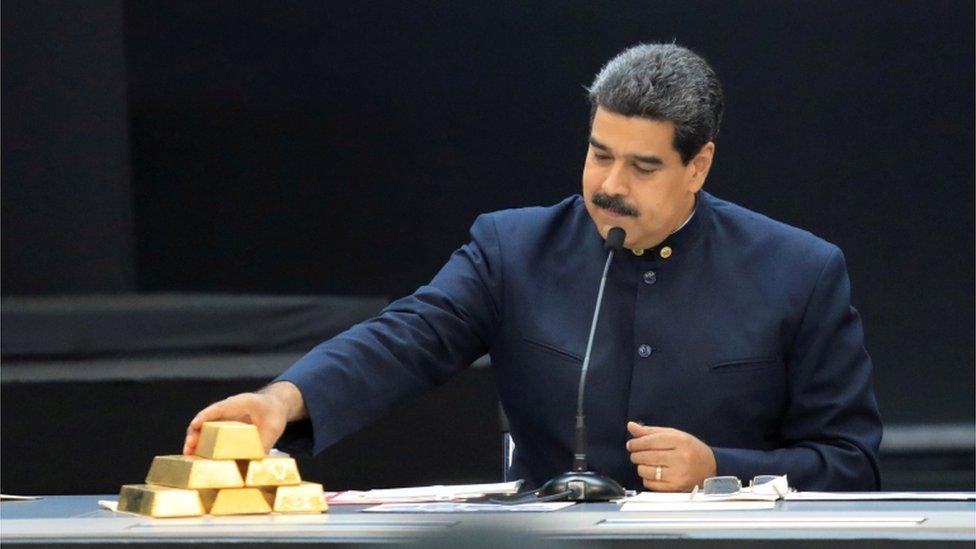
- Published30 September 2020
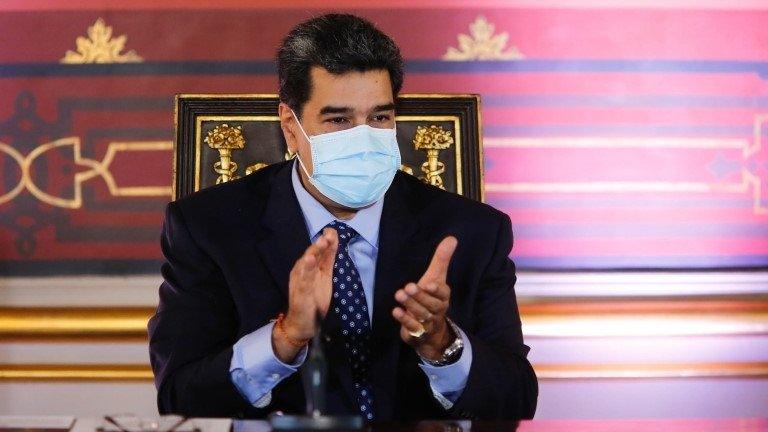
- Published16 September 2020
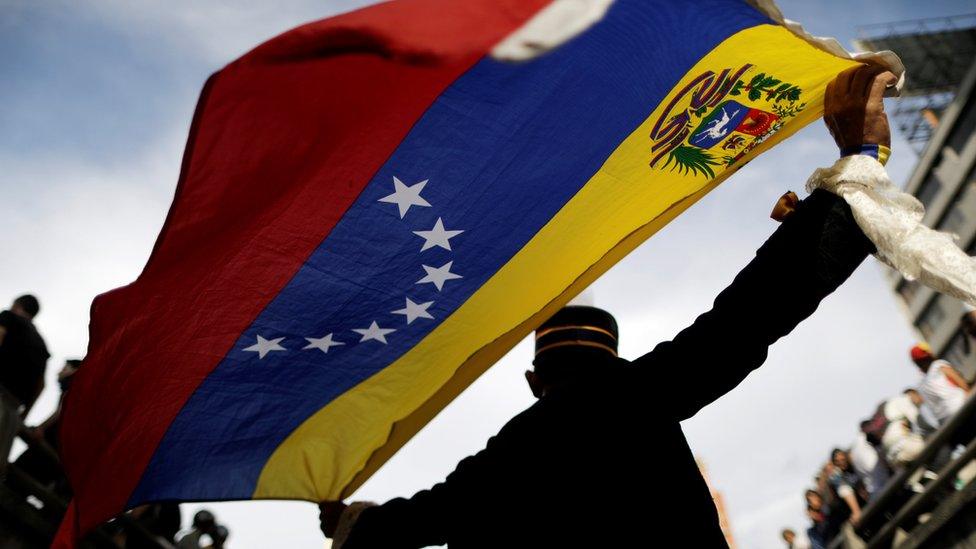
- Published1 September 2020
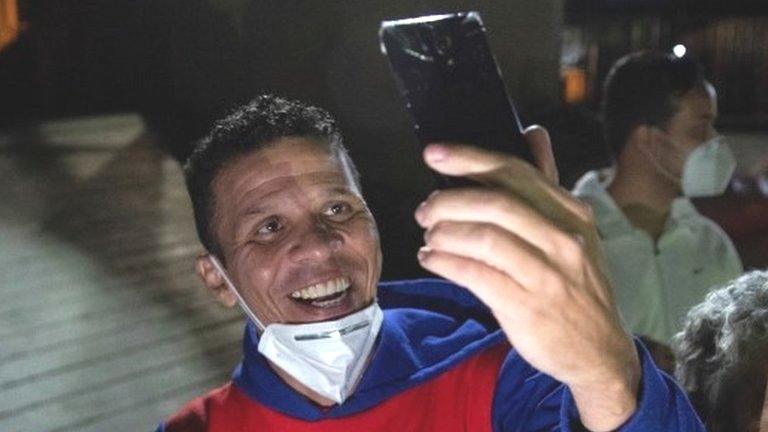
- Published22 July 2020
